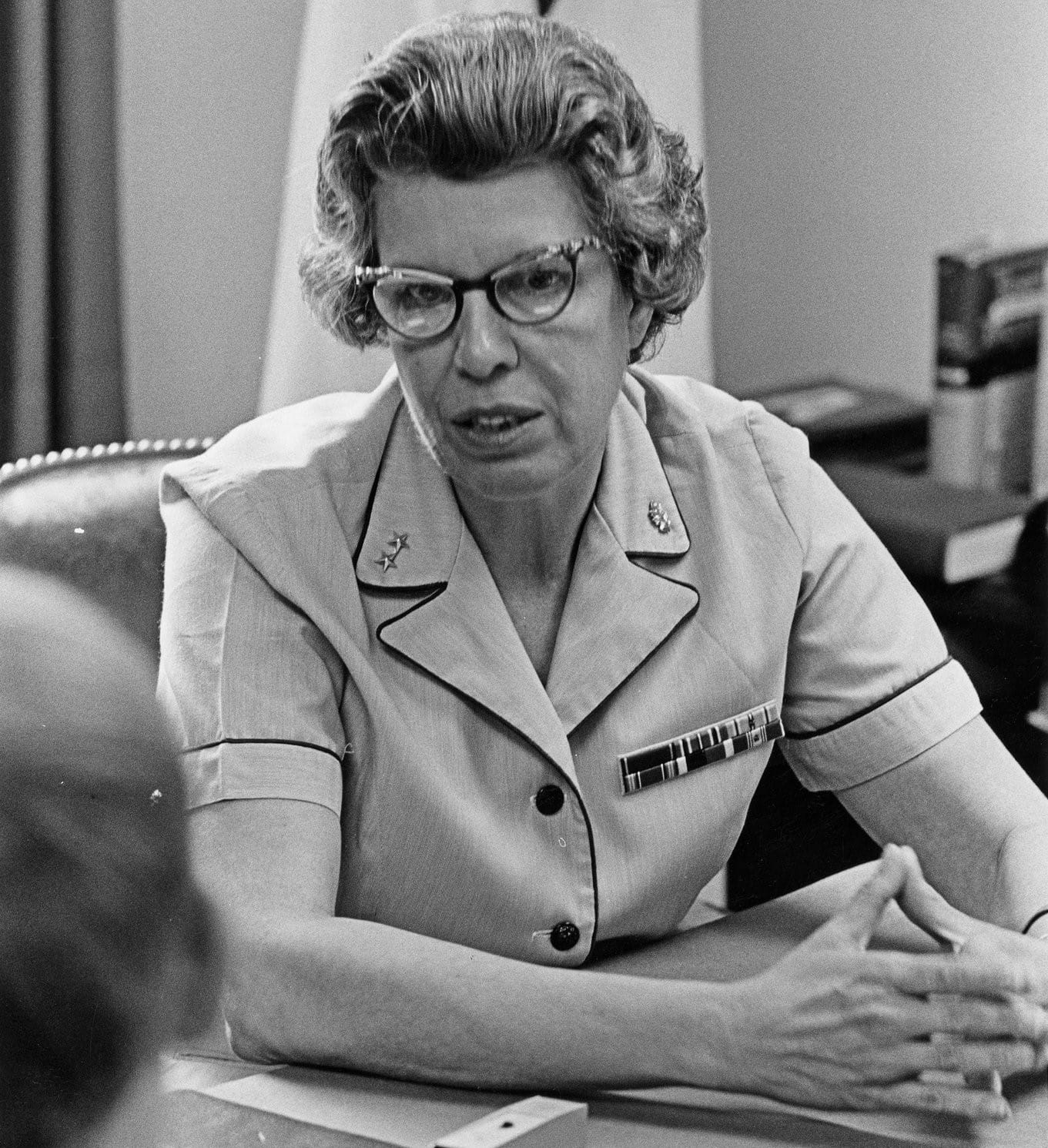
U.S. Navy photo from BUMED Archives
After leaving her nursing job in an Ohio department store to join the Navy Nurse Corps in World War II, Alene Duerk (pronounced “Dirk”) planned on a short term of duty to her country.
“I didn’t go into the Navy for a lifetime, I went in for six months,” Alene B. Duerk told an interviewer in 2016, when she was 96. “But I had an amazing career.”
“In 1972,” The New York Times, writing on the death of Duerk at 98 “after rising through the ranks of the Navy Nurse Corps, she became the first woman to attain the rank of rear admiral.
“Alene Bertha Duerk was born on March 29, 1920, in Defiance, Ohio, to Albert and Emma Duerk. Her father, who had health problems related to his service in World War I, became ill enough when Alene was a young girl that nurses came to their house frequently.
“ ‘I believe those nurses were my first introduction to nursing,’ Admiral Duerk said in an interview for “Registered Nurse to Rear Admiral: A First for Navy Women,” a 2003 book about her written by Estelle McDoniel.”
Clearly, those nurses did more than introduce Duerk to nursing. They inspired a lifelong commitment not only to the profession but service to her country.
“Adm. Duerk,” The Washington Post reports, “was promoted from captain to rear admiral on June 1, 1972…
“She would have been legally barred from the rank — the equivalent of an Army major general — just five years earlier, under rules that blocked women from becoming general or flag officers in the armed forces. But those restrictions were removed under President Lyndon B. Johnson, and in 1970, Anna Mae Hays, chief of the Army Nurse Corps, became America’s first female general.
“With her promotion,” The Post continues, “Adm. Duerk became the de facto media spokeswoman for women in the Navy, including the 2,300 nurses in her charge as well as women in the Supply Corps and female enlistees known by their World War II-era acronym, Waves.
“ ‘Being the first of anything has its responsibilities,’ she told the New York Post in 1972. ‘I’m more than an officer. I’m a symbol, for women in the Navy and the military. Women thinking of careers like mine can know that . . . the ultimate is possible.’
“Her main priority,” The Post adds, “remained the Nurse Corps and its 39 hospitals, which she had directed since 1970.
“In a recent story for the Sextant, a Navy blog, medical historian André Sobocinski wrote that Adm. Duerk ‘provided astute and forward-thinking direction for the nurse corps, scrapping outmoded policies negatively affecting Navy medicine, expanding the sphere of nursing into ambulatory care, anesthesia, pediatrics and obstetrics/gynecology, emphasizing the value of the individual officer and increasing educational opportunities for nurses.’
“Pay and promotion opportunities for nurses increased, he added, and ‘the retention rate more than doubled.’ ”
Remarking on being the first female rear admiral, Duerk said, “It was a nice distinction to have and to be recognized as the first,” she said, “but I wanted to make certain that I used that notoriety to do as much positive as I could.”
Comments









